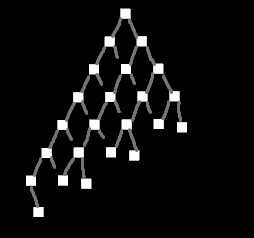# Objective
Provide a starting point for #3951, or a partial solution.
Providing a few comment blocks to discuss, and hopefully find better one in the process.
## Solution
Since I am pretty new to pretty much anything in this context, I figured I'd just start with a draft for some file level doc blocks. For some of them I found more relevant details (or at least things I considered interessting), for some others there is less.
## Changelog
- Moved some existing comments from main() functions in the 2d examples to the file header level
- Wrote some more comment blocks for most other 2d examples
TODO:
- [x] 2d/sprite_sheet, wasnt able to come up with something good yet
- [x] all other example groups...
Also: Please let me know if the commit style is okay, or to verbose. I could certainly squash these things, or add more details if needed.
I also hope its okay to raise this PR this early, with just a few files changed. Took me long enough and I dont wanted to let it go to waste because I lost motivation to do the whole thing. Additionally I am somewhat uncertain over the style and contents of the commets. So let me know what you thing please.
# Objective
- Closes#335.
- Related #4285.
- Part of the splitting process of #3503.
## Solution
- Move `Rect` to `bevy_ui` and rename it to `UiRect`.
## Reasons
- `Rect` is only used in `bevy_ui` and therefore calling it `UiRect` makes the intent clearer.
- We have two types that are called `Rect` currently and it's missleading (see `bevy_sprite::Rect` and #335).
- Discussion in #3503.
## Changelog
### Changed
- The `Rect` type got moved from `bevy_math` to `bevy_ui` and renamed to `UiRect`.
## Migration Guide
- The `Rect` type got renamed to `UiRect`. To migrate you just have to change every occurrence of `Rect` to `UiRect`.
Co-authored-by: KDecay <KDecayMusic@protonmail.com>
# Objective
- Fixes#4234
- Fixes#4473
- Built on top of #3989
- Improve performance of `assign_lights_to_clusters`
## Solution
- Remove the OBB-based cluster light assignment algorithm and calculation of view space AABBs
- Implement the 'iterative sphere refinement' algorithm used in Just Cause 3 by Emil Persson as documented in the Siggraph 2015 Practical Clustered Shading talk by Persson, on pages 42-44 http://newq.net/dl/pub/s2015_practical.pdf
- Adapt to also support orthographic projections
- Add `many_lights -- orthographic` for testing many lights using an orthographic projection
## Results
- `assign_lights_to_clusters` in `many_lights` before this PR on an M1 Max over 1500 frames had a median execution time of 1.71ms. With this PR it is 1.51ms, a reduction of 0.2ms or 11.7% for this system.
---
## Changelog
- Changed: Improved cluster light assignment performance
Co-authored-by: robtfm <50659922+robtfm@users.noreply.github.com>
Co-authored-by: Carter Anderson <mcanders1@gmail.com>
# Objective
- Several examples are useful for qualitative tests of Bevy's performance
- By contrast, these are less useful for learning material: they are often relatively complex and have large amounts of setup and are performance optimized.
## Solution
- Move bevymark, many_sprites and many_cubes into the new stress_tests example folder
- Move contributors into the games folder: unlike the remaining examples in the 2d folder, it is not focused on demonstrating a clear feature.
# Objective
- Make use of storage buffers, where they are available, for clustered forward bindings to support far more point lights in a scene
- Fixes#3605
- Based on top of #4079
This branch on an M1 Max can keep 60fps with about 2150 point lights of radius 1m in the Sponza scene where I've been testing. The bottleneck is mostly assigning lights to clusters which grows faster than linearly (I think 1000 lights was about 1.5ms and 5000 was 7.5ms). I have seen papers and presentations leveraging compute shaders that can get this up to over 1 million. That said, I think any further optimisations should probably be done in a separate PR.
## Solution
- Add `RenderDevice` to the `Material` and `SpecializedMaterial` trait `::key()` functions to allow setting flags on the keys depending on feature/limit availability
- Make `GpuPointLights` and `ViewClusterBuffers` into enums containing `UniformVec` and `StorageBuffer` variants. Implement the necessary API on them to make usage the same for both cases, and the only difference is at initialisation time.
- Appropriate shader defs in the shader code to handle the two cases
## Context on some decisions / open questions
- I'm using `max_storage_buffers_per_shader_stage >= 3` as a check to see if storage buffers are supported. I was thinking about diving into 'binding resource management' but it feels like we don't have enough use cases to understand the problem yet, and it is mostly a separate concern to this PR, so I think it should be handled separately.
- Should `ViewClusterBuffers` and `ViewClusterBindings` be merged, duplicating the count variables into the enum variants?
Co-authored-by: Carter Anderson <mcanders1@gmail.com>
## Objective
There recently was a discussion on Discord about a possible test case for stress-testing transform hierarchies.
## Solution
Create a test case for stress testing transform propagation.
*Edit:* I have scrapped my previous example and built something more functional and less focused on visuals.
There are three test setups:
- `TestCase::Tree` recursively creates a tree with a specified depth and branch width
- `TestCase::NonUniformTree` is the same as `Tree` but omits nodes in a way that makes the tree "lean" towards one side, like this:
<details>
<summary></summary>

</details>
- `TestCase::Humanoids` creates one or more separate hierarchies based on the structure of common humanoid rigs
- this can both insert `active` and `inactive` instances of the human rig
It's possible to parameterize which parts of the hierarchy get updated (transform change) and which remain unchanged. This is based on @james7132 suggestion:
There's a probability to decide which entities should remain static. On top of that these changes can be limited to a certain range in the hierarchy (min_depth..max_depth).